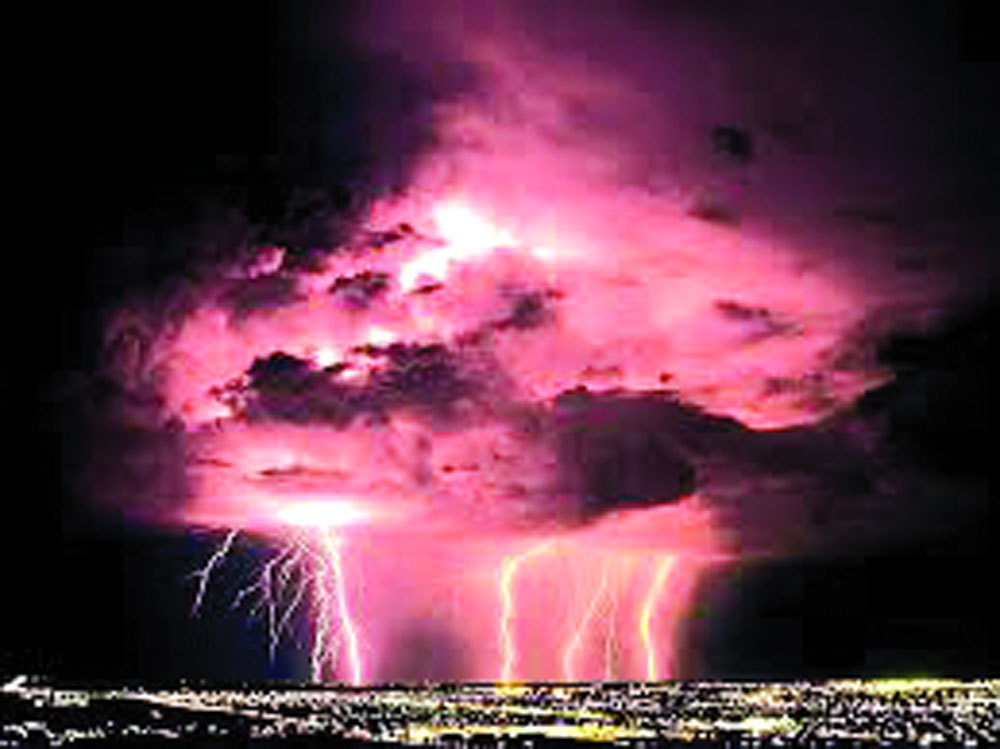If Europe faced the summer of discontent this year, Kerala’s experience was the autumn of despair. And it is not going to get any better, with the human greed and ego showing no signs of restraint. Incidents like these serve as a grim warning to the humankind, which — inebriated with the power of its feats of science and technology — seems to be acquiring a false sense of invincibility. For those of us who have only heard of the apocalypse, Kerala floods offer but a short trailer of the shape of things to descend if we do not mend our ways. The many names with which the different religions call the impending disaster to befall on mankind appear to be a distinct possibility, given the increase in frequency of Kerala-like catastrophes that are now too global to be ignored. As the going gets hotter around the world, the prospects of melting glaciers, rising oceans, and cracking earth seem to be lurking. If the Biblical deluge was to punish a humanity gone awry, the idea of pralaya in the Hindu religion signalled God’s ire for the humankind gone astray. Qayamat in Islam has similar connotations. All these, then, are the ultimate outcome of the unsavoury ways of mankind. It is not just about pollution of the environment, though that is also a reason. There is more to be thought and dreaded — the serious and alarming rise in the pollution of thought processes. Spurious ideas are poisoning the human mind as it acquires an unusual streak of haughtiness, challenging the supremacy of Mother Nature, a creation of God. For the non-believers, there are explanations in science as well as philosophy. While science talks about the interconnectedness of the world, which is a neatly designed perfect system in an equilibrium state, and any disturbance brings about a corresponding change so that the equilibrium is restored. This homeostatic tendency is inbuilt, though rather impossible to detect. Philosophy, on the other hand, talks about the natural teleology which, doubts notwithstanding, explains the natural phenomenon rather lucidly for anyone willing to see the big picture. Even though acceptance of this principle is not wide, rejecting it with certainty is still not authenticated. It is this teleological argument that finds favour with most philosophical schools, and Buddha’s concept of dependent origination named Pratityasamutpada logically asserts the principle. The incidents of disaster that keep arising at a nagging pace must be taken seriously and there’s a need to instill a sense of urgency globally. Ignoring them as stray events may be at our own peril. It is unfortunate that world leaders of consequence appear not to be as deeply concerned as they should be. Rather, they are pursuing the path of disaster, most prominent being the response of US President, whose country should have taken the lead. It is time to acknowledge that we are running out of time. And this time around, there is no divine sermon to suggest that a concept like Noah’s Ark is very much the need of the hour. The difficulty lies not only in identifying a Noah, but is also in the failure to realise that the world is for living in peaceful coexistence instead of chaotic individualism, that has become the norm. It is time people rise to the occasion rather than the Government leaders, who cannot see beyond the end of their nose.
Pathak is a professor of management, writer, and an acclaimed public speaker. He can be reached at ppathak.ism@gmail.com


























